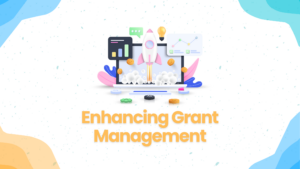
Enhancing Grant Management
Schedule a Demo View Interactive Tour Enhancing Grant Management Community Brands’ “Association Trends Study 2024” sheds light on priorities and challenges facing
In the competitive landscape of awards, grants, and scholarship programs, quality and reliable reference information is crucial. Traditional narrative-based reference letters have become outdated and insufficient. A modernized approach to reference collection addresses these shortcomings and enhances the evaluation process.
A structured and standardized method offers a comprehensive view of each candidate’s qualifications and personal attributes. It supports informed decision-making by allowing direct comparisons between candidates, making it easier to identify unique qualities and competencies.
Benefits of the revamped reference submission process:
Transitioning to a structured reference collection method addresses the limitations of traditional letters and improves the selection process across awards, grants, and scholarships.
The revamped method of reference collection focuses on a standardized approach, ensuring consistent, reliable, and relevant information from each reference. By transitioning from narrative-based reference letters to a structured questionnaire format, the system achieves several key improvements:
Avoid reference letters:
Leverage reference templates:
Use Reviewrs automated reference collection process:
Benefits to this revamped reference submission process:
Standardization and Reliability
Efficiency and Completeness
Enhanced Data Integrity
This change in approach to collecting references ensures that the evaluation process is both efficient and equitable, providing a solid foundation for assessing candidates’ suitability and potential.

Schedule a Demo View Interactive Tour Enhancing Grant Management Community Brands’ “Association Trends Study 2024” sheds light on priorities and challenges facing

Schedule a Demo View Interactive Tour Enhancing Scholarship Management Introduction to the Scholarship Landscape and Key Insights The recent findings from Netforum’s
